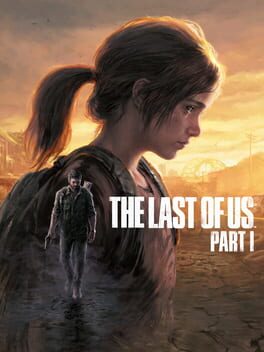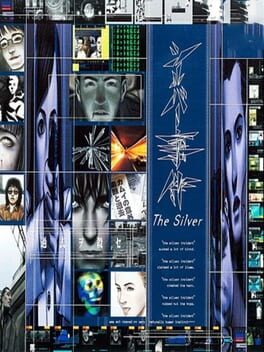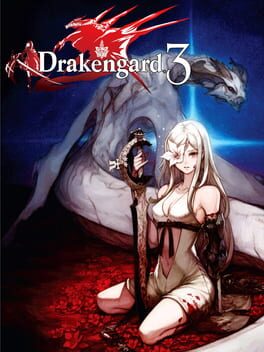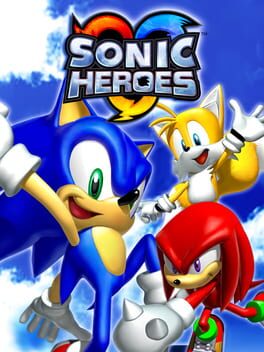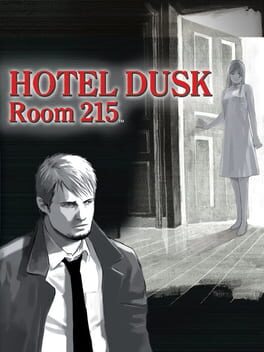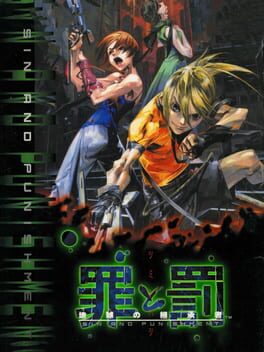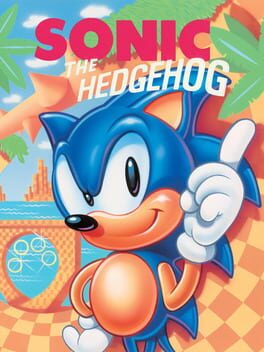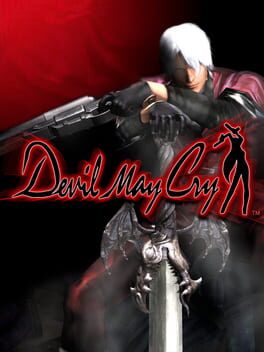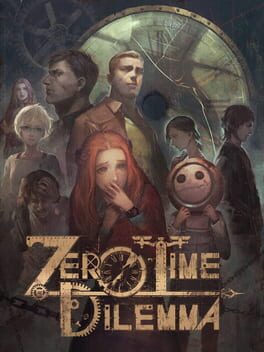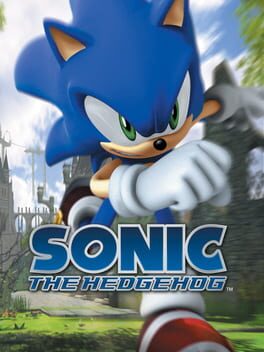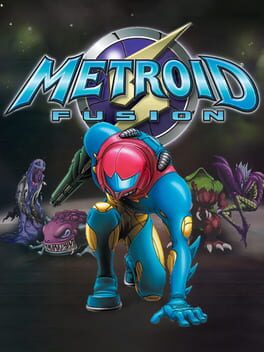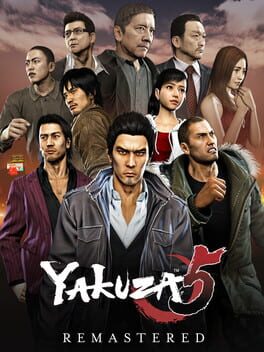Josh_The_Fourth
1999
2013
2003
2007
2005
what does it mean to be a creator? well, obviously it’s to make a work, something that is yours. but, what defines the line between being a creator or not? as a (self proclaimed) photographer i question, am i a creator? i create photos but i do not necessarily create the world within the confines of the photo. being able to maximize the impact of said world within the limits of a photograph is what i believe to be a key part of being a photographer.
bound by the chains of corporate demands and strict time windows, suda had the vision, the world. all that was needed was mikami to metaphorically snap the photo, and capture suda’s visions in the most substantially compelling way possible.
photographers are as much creators as a painter or musician is. they may not be the direct source for what they produce, but what artist is? everyone has influences and points of reference for their work. photographers have… just a much larger reference is all, a pre-painted canvas if you will, where they can do what they see fit with this canvas to create.
all that was left was the final touch, a soundtrack to accompany this creation. like how memories and stories can extrinsically loom in a photograph, a soundtrack looms throughout a video game. takada is, putting it bluntly, a damn genius when it comes to this field. he knows exactly the right drum beat, the right guitar riff that can emotionally intensify a scene.
im not going to go into what killer7 means in-and-of itself, rather what it means as a work, a creation. to explain what in the fuck goes on in this game is fruitless, much like suda’s prior works honestly. the thrill of kill the past is in its absurdity and broad ideologies, both never ceasing to be thought provoking in one way or another. there’s an endless amount of perspectives you could assume to try and narrow down what it all means, but personally i find it almost futile. don’t get me wrong i love discussing suda’s works in the context of their deeper meanings, although honestly i’m okay knowing i don’t completely understand games like flower sun and rain, 25th ward, and killer7. people are typically infatuated with what they do not comprehend, and are infatuated with wanting to comprehend. i am infatuated with suda because of his willingness to deliberately create something that people won’t comprehend. that itself i respect and it’s always a treat when these incomprehensible creations end up becoming flat out masterpieces.
and now it is complete. through the collaborative genius at grasshopper manufacture, an overwhelmingly artistic work both before and ahead of its time has been created. killer7 is both dated and timeless; both the worst, and best video game ever made. a game such as this will never be created ever again.
i’ve spent the past few minutes rereading what i’ve written thus far wondering how to conclude this concisely in a manner that ties everything together. it’s hard. i was thinking of talking about the gameplay but everybody knows the gameplay. everybody knows that no matter what, the instant bloody combustion of a heaven smile always feels good, and that the sounds that accompany the firing and reloading of your weapon always feel good. killer7 feels good.
i’ve realized that killer7 doesn’t really conclude and nothing ties together, but that’s the beauty of it. you’re left satisfied despite this, left with ideas and thoughts that boil. and they will continue to boil. killer7 will never end. as long as video games exist, killer7 will always have the last laugh.
The day he stops smiling is the day we remember his smile.
bound by the chains of corporate demands and strict time windows, suda had the vision, the world. all that was needed was mikami to metaphorically snap the photo, and capture suda’s visions in the most substantially compelling way possible.
photographers are as much creators as a painter or musician is. they may not be the direct source for what they produce, but what artist is? everyone has influences and points of reference for their work. photographers have… just a much larger reference is all, a pre-painted canvas if you will, where they can do what they see fit with this canvas to create.
all that was left was the final touch, a soundtrack to accompany this creation. like how memories and stories can extrinsically loom in a photograph, a soundtrack looms throughout a video game. takada is, putting it bluntly, a damn genius when it comes to this field. he knows exactly the right drum beat, the right guitar riff that can emotionally intensify a scene.
im not going to go into what killer7 means in-and-of itself, rather what it means as a work, a creation. to explain what in the fuck goes on in this game is fruitless, much like suda’s prior works honestly. the thrill of kill the past is in its absurdity and broad ideologies, both never ceasing to be thought provoking in one way or another. there’s an endless amount of perspectives you could assume to try and narrow down what it all means, but personally i find it almost futile. don’t get me wrong i love discussing suda’s works in the context of their deeper meanings, although honestly i’m okay knowing i don’t completely understand games like flower sun and rain, 25th ward, and killer7. people are typically infatuated with what they do not comprehend, and are infatuated with wanting to comprehend. i am infatuated with suda because of his willingness to deliberately create something that people won’t comprehend. that itself i respect and it’s always a treat when these incomprehensible creations end up becoming flat out masterpieces.
and now it is complete. through the collaborative genius at grasshopper manufacture, an overwhelmingly artistic work both before and ahead of its time has been created. killer7 is both dated and timeless; both the worst, and best video game ever made. a game such as this will never be created ever again.
i’ve spent the past few minutes rereading what i’ve written thus far wondering how to conclude this concisely in a manner that ties everything together. it’s hard. i was thinking of talking about the gameplay but everybody knows the gameplay. everybody knows that no matter what, the instant bloody combustion of a heaven smile always feels good, and that the sounds that accompany the firing and reloading of your weapon always feel good. killer7 feels good.
i’ve realized that killer7 doesn’t really conclude and nothing ties together, but that’s the beauty of it. you’re left satisfied despite this, left with ideas and thoughts that boil. and they will continue to boil. killer7 will never end. as long as video games exist, killer7 will always have the last laugh.
The day he stops smiling is the day we remember his smile.
2000
no amount of words could possibly do enough justice. pure unhinged teenage profoundness. a masterclass in the culmination of elements from its inspirations. almost a parody of its pop-culture and on-rails influences, using them as a basis for both its sci-fi-action foundation and exceeding the player’s initial expectations. its face filled with complacency in admitting “yeah, we added a fully fledged cinematic-robo-socio-political narrative on top of the enigmatic disproportionately beautiful gameplay.” a blood-pumping, sharply concentrated soundtrack follows suit to wrap everything together into a somewhat messy package, but it’s an incredibly attractive and addicting package. confidently puts the “mecha” in mechanics.
1991
EDIT: thanks so much for all the support everyone, means a lot. after a LOT of thinking, i've decided that i'll still be writing reviews, just shorter, as to not exhaust myself. thanks again.
anyone who knows me knows that i love all the classic sonic games. they’re my comfort games and i’ve been playing them for probably a decade by now. a friend of mine recommended me to play this one again today so i decided to revisit it. this isn’t an unbiased review that’s trying to see if this game “still holds up” or “is as good as i thought it was when i was a kid.” far from it. i love this game lol. my rating is my general critique mixed with my biases and nostalgia i have towards it. sonic 1 is a game that i can pop in anytime and get enjoyment out of it.
green hill is my goat. marble is tolerable. spring yard is cool. labyrinth is ass. star light is awesome. scrap brain is mid. that’s it. that’s the whole review.
console wars, genesis vs super nintendo, america, who gives a fuck. you’ve heard it all before and it doesn’t impact the game’s quality very much at all. sonic defined a generation partly because of sega’s great marketing and shit or whatever, but if the game was no good then it wouldn’t have lasted. sonic 1 is a good game, always was. it didn’t age, it didn’t change. it’s sonic T. hedgehog on the Sega. for years little kids everywhere rushed to their shiny wrapped boxes under that prickly tree to find the Sega they wanted bundled with the sonic edgehog they wanted too. kids aren’t stupid, they knew sonic was our goat. it’s a great time with some dull moments that don’t hinder the overall package all that much. does it suffer from first game syndrome? certainly, but this only further proves that what was laid down here was great enough to allow the construction of the fantastic sequels…
———
i’m burnt out man, what do i write next. critical analysis my ass, it’s 10:41 PM on a weekday and i should be sleeping, but guess what? i’m not. sonic the hedgehog sega genesis baby, it does wild shit. to get real for a second i genuinely wrote like a page of some critiques and shit i have with this game. scrapped. i’ve been slowly feeling like my reviews have been becoming really forced and this was it. this was the one that made me genuinely angry. i want to write more reviews but it is really hard. shits becoming stale for me and i feel like there’s nothing i can do. i’m trying to break away from this boxed up structure i see some of my reviews share. the same words and phrases again and again. Backloggd.com. maybe it’s time for me to play a video game and not write a review about it. maybe i should play games and genuinely let them penetrate my soul and allow me to soak in their great, mid, or even terrible juices without having the need to pull out iOS Notes to jot down thoughts or justify how i feel to a seemingly invisible opposing party. maybe it’s time to say goodbye to backloggd.com, just for a little while. to those who follow me and like my stuff i’ll always be thankful to you guys. it means a lot to me that my little ramblings and shit about video games actually interest people. never in my life did i think i’d gain a following on this site. to everyone who reads this mess of a review, thanks.
Sonic the Hedgehog is a platform video game developed by Sonic Team and published by Sega for the Sega Genesis home video game console. The first game in the Sonic the Hedgehog franchise, it was released in North America in June 1991 and in PAL regions and Japan the following month.
No, I didn’t proofread this, nor do I intend to.
anyone who knows me knows that i love all the classic sonic games. they’re my comfort games and i’ve been playing them for probably a decade by now. a friend of mine recommended me to play this one again today so i decided to revisit it. this isn’t an unbiased review that’s trying to see if this game “still holds up” or “is as good as i thought it was when i was a kid.” far from it. i love this game lol. my rating is my general critique mixed with my biases and nostalgia i have towards it. sonic 1 is a game that i can pop in anytime and get enjoyment out of it.
green hill is my goat. marble is tolerable. spring yard is cool. labyrinth is ass. star light is awesome. scrap brain is mid. that’s it. that’s the whole review.
console wars, genesis vs super nintendo, america, who gives a fuck. you’ve heard it all before and it doesn’t impact the game’s quality very much at all. sonic defined a generation partly because of sega’s great marketing and shit or whatever, but if the game was no good then it wouldn’t have lasted. sonic 1 is a good game, always was. it didn’t age, it didn’t change. it’s sonic T. hedgehog on the Sega. for years little kids everywhere rushed to their shiny wrapped boxes under that prickly tree to find the Sega they wanted bundled with the sonic edgehog they wanted too. kids aren’t stupid, they knew sonic was our goat. it’s a great time with some dull moments that don’t hinder the overall package all that much. does it suffer from first game syndrome? certainly, but this only further proves that what was laid down here was great enough to allow the construction of the fantastic sequels…
———
i’m burnt out man, what do i write next. critical analysis my ass, it’s 10:41 PM on a weekday and i should be sleeping, but guess what? i’m not. sonic the hedgehog sega genesis baby, it does wild shit. to get real for a second i genuinely wrote like a page of some critiques and shit i have with this game. scrapped. i’ve been slowly feeling like my reviews have been becoming really forced and this was it. this was the one that made me genuinely angry. i want to write more reviews but it is really hard. shits becoming stale for me and i feel like there’s nothing i can do. i’m trying to break away from this boxed up structure i see some of my reviews share. the same words and phrases again and again. Backloggd.com. maybe it’s time for me to play a video game and not write a review about it. maybe i should play games and genuinely let them penetrate my soul and allow me to soak in their great, mid, or even terrible juices without having the need to pull out iOS Notes to jot down thoughts or justify how i feel to a seemingly invisible opposing party. maybe it’s time to say goodbye to backloggd.com, just for a little while. to those who follow me and like my stuff i’ll always be thankful to you guys. it means a lot to me that my little ramblings and shit about video games actually interest people. never in my life did i think i’d gain a following on this site. to everyone who reads this mess of a review, thanks.
Sonic the Hedgehog is a platform video game developed by Sonic Team and published by Sega for the Sega Genesis home video game console. The first game in the Sonic the Hedgehog franchise, it was released in North America in June 1991 and in PAL regions and Japan the following month.
No, I didn’t proofread this, nor do I intend to.
2001
the wretched discussion of what is considered to have aged or not to have aged. devil may cry is a landmark example of a game that needs to be taken in from a perspective within itself. this is the game that both invented and defined the hack-n-slash genre. playing this i don’t put it comparatively next to any later game in the franchise or hell later games in general, as sure it can be seen as outdated and flat out worse, but that’s what makes this game great. the future games being so expansive and advanced is because of the fantastic foundation set here. now, this is not to excuse the game’s flaws, far from it. i just want to clear it up that games “aging” is a poor method of critiquing something of the past that has been done better in the future. aging is contextual and with games like this you have to view its aspects in the context of its release. there are still issues i have with the game that can be critiqued no matter when this game released.
miscommunication. that’s the feeling i get from some of these missions. the camera is weirdly but understandably disconnected from the action on-screen which is a remnant of its resident evil origins, but it doesn’t work as well here in combat specifically. you have odd top down angles that can switch to an uptight and claustrophobic wide shot from dante’s behind while trying to react accordingly to enemies. this becomes an issue in hallway sections and tight spaces, which honestly was a somewhat infrequently issue but when it did happen it was a bit frustrating. the first phantom battle is a key example of this with the camera constantly changing when moving while you’re trying to dodge lethal attacks safely. “why isn’t this a relic of its time to be viewed in its original context?” you may ask by now. the simple answer is that this seems a bit like an overlooked design flaw. not being able to dodge an attack due to the game’s incompetence is certainly not an intended feature for a game in any era. even then, some of the shots presented are very much fitting to the overall tone and atmosphere in each area. you’re in uncharted territory unaware of what lies ahead of you so naturally you’re as anxious as the camera angles convey.
combat depth is not something i had an issue with or was wanting more of, as the options you’re given are well suited for what’s brought to the table. fighting hoards of enemies makes you feel like the badass dante really is. the skill ceiling is undoubtedly very high but climbing up the ladder to reach that ceiling doesn’t feel unnatural. as missions progress, bosses become adapted to your skillset to keep you on your toes. nelo angelo specifically is memorable because of this and his kick ass design. all the bosses have pretty cool designs that speak for themselves.
back with another one of those BLOCK ROCKIN BEATS; the soundtrack is very late 90s to early 2000s influenced hard rock mixed with some electronica elements that could be compared to the prodigy or chemical brothers. psycho siren is a really good representation of this with its blaring siren sample that gets cut and looped while the most banging drumbeat backs it up. nelo angelo’s theme is another banger and is truly as memorable as his character.
speaking of character, to cap this off, dante’s character. he’s the cheesy edgy bastard we all know and love. he can kick some serious ass and drop some serious one liners.
overall this game just reeks of over-personified 2000s charm and cheesiness that defines a new genre and left a cultural impact.
devils never cry.
miscommunication. that’s the feeling i get from some of these missions. the camera is weirdly but understandably disconnected from the action on-screen which is a remnant of its resident evil origins, but it doesn’t work as well here in combat specifically. you have odd top down angles that can switch to an uptight and claustrophobic wide shot from dante’s behind while trying to react accordingly to enemies. this becomes an issue in hallway sections and tight spaces, which honestly was a somewhat infrequently issue but when it did happen it was a bit frustrating. the first phantom battle is a key example of this with the camera constantly changing when moving while you’re trying to dodge lethal attacks safely. “why isn’t this a relic of its time to be viewed in its original context?” you may ask by now. the simple answer is that this seems a bit like an overlooked design flaw. not being able to dodge an attack due to the game’s incompetence is certainly not an intended feature for a game in any era. even then, some of the shots presented are very much fitting to the overall tone and atmosphere in each area. you’re in uncharted territory unaware of what lies ahead of you so naturally you’re as anxious as the camera angles convey.
combat depth is not something i had an issue with or was wanting more of, as the options you’re given are well suited for what’s brought to the table. fighting hoards of enemies makes you feel like the badass dante really is. the skill ceiling is undoubtedly very high but climbing up the ladder to reach that ceiling doesn’t feel unnatural. as missions progress, bosses become adapted to your skillset to keep you on your toes. nelo angelo specifically is memorable because of this and his kick ass design. all the bosses have pretty cool designs that speak for themselves.
back with another one of those BLOCK ROCKIN BEATS; the soundtrack is very late 90s to early 2000s influenced hard rock mixed with some electronica elements that could be compared to the prodigy or chemical brothers. psycho siren is a really good representation of this with its blaring siren sample that gets cut and looped while the most banging drumbeat backs it up. nelo angelo’s theme is another banger and is truly as memorable as his character.
speaking of character, to cap this off, dante’s character. he’s the cheesy edgy bastard we all know and love. he can kick some serious ass and drop some serious one liners.
overall this game just reeks of over-personified 2000s charm and cheesiness that defines a new genre and left a cultural impact.
devils never cry.
1998
lost in the bloody shadows of war are the cries of those who seek the light.
the golden standard for equally balanced gameplay and story. blended together in such a way where one cannot exist without the other. each and every guard we come across, unknowingly trapped as pawns in a much deeper game whose players show blatant disregard for their own pieces on the board. everyone has selfish reasons for fighting, despite war never ending in favor of its soldiers turned victims. victory is reliant on how mercilessly you can move forward while forgetting the scent of past’s bloody aroma.
i’m a huge fan of every character here but the one i felt most connected to was surprisingly meryl. she’s almost like this self insert for some of the audience with her portrayal of the battlefield as this larger-than-life action flick displaying heroes and villains. as the game goes on, both us and meryl slowly discover the truth of it. there are no heroes, no villains. on the surface there appears to be two different sides, but on the battlefield there are just people, people who simply do what they’re told. mgs1 doesn’t sugarcoat anything, conveying the cold truths beneath what we know as “war.” the mysteries run deeper than we initially thought.
the game’s content wouldn’t have worked as well as it did if not for the unconventional yet effective writing combined with the surprising amount of production value. at times it can be a bit infodumpy but the subject matter is relevant and intriguing enough to keep me interested. the cutscene presentation was initially what blew me away like many others. each scene has some really good shot composition and directing. it’s definitely reminiscent of the terminators and the predators of the time while still managing to be distinct in its own right. there’s a noticeable amount of attention to detail paid to both the cinematics and gameplay. when roaming the foreboding mechanical hallways of shadow moses you have all the tools at your disposal, it’s up to you to figure out how to use those tools realistically and efficiently. there’s no one set way to do basically anything in the game. experimentation is encouraged and even today i find it to be pretty ingenious.
the past can be used as an excuse to justify our present actions. in our strive for personal benefit sometimes we lose sight of who we really are. the past is important, no doubt, but what we make of ourselves now is what counts (if you can excuse my bit of cliche regurgitation). live on snake, otacon, meryl.
metal gear solid’s legacy speaks for itself. there’s not much more i can add to the discussion that hasn’t already been said. it’s considered one of the greatest games ever made for a reason, setting a new standard for the medium that still echoes throughout the modern gaming world. one of the most revolutionary titles i’ve played in recent memory.
the golden standard for equally balanced gameplay and story. blended together in such a way where one cannot exist without the other. each and every guard we come across, unknowingly trapped as pawns in a much deeper game whose players show blatant disregard for their own pieces on the board. everyone has selfish reasons for fighting, despite war never ending in favor of its soldiers turned victims. victory is reliant on how mercilessly you can move forward while forgetting the scent of past’s bloody aroma.
i’m a huge fan of every character here but the one i felt most connected to was surprisingly meryl. she’s almost like this self insert for some of the audience with her portrayal of the battlefield as this larger-than-life action flick displaying heroes and villains. as the game goes on, both us and meryl slowly discover the truth of it. there are no heroes, no villains. on the surface there appears to be two different sides, but on the battlefield there are just people, people who simply do what they’re told. mgs1 doesn’t sugarcoat anything, conveying the cold truths beneath what we know as “war.” the mysteries run deeper than we initially thought.
the game’s content wouldn’t have worked as well as it did if not for the unconventional yet effective writing combined with the surprising amount of production value. at times it can be a bit infodumpy but the subject matter is relevant and intriguing enough to keep me interested. the cutscene presentation was initially what blew me away like many others. each scene has some really good shot composition and directing. it’s definitely reminiscent of the terminators and the predators of the time while still managing to be distinct in its own right. there’s a noticeable amount of attention to detail paid to both the cinematics and gameplay. when roaming the foreboding mechanical hallways of shadow moses you have all the tools at your disposal, it’s up to you to figure out how to use those tools realistically and efficiently. there’s no one set way to do basically anything in the game. experimentation is encouraged and even today i find it to be pretty ingenious.
the past can be used as an excuse to justify our present actions. in our strive for personal benefit sometimes we lose sight of who we really are. the past is important, no doubt, but what we make of ourselves now is what counts (if you can excuse my bit of cliche regurgitation). live on snake, otacon, meryl.
metal gear solid’s legacy speaks for itself. there’s not much more i can add to the discussion that hasn’t already been said. it’s considered one of the greatest games ever made for a reason, setting a new standard for the medium that still echoes throughout the modern gaming world. one of the most revolutionary titles i’ve played in recent memory.
2016
¥50,000 huh…… ▋
What the fuck, man. This goddamn game. Suda you’re a fucking madman. I wrote literally two scripts before writing this one. I can’t find the right balance between overtly referencing The Silver Case and articulating my own thoughts, so, fuck it. We’re winging this shit. I’m not going to stress on this review at all. I’m writing freely. This game actually fucked me up LOL. My sleep schedule was ruined by it. Just like Tokio fr!!! Game was insanely captivating and immersive so much so that I couldn’t put it down.
FUCK THE PAST ▋
First off, I have to say I absolutely adore the art style and visual presentation. When I initially found out about The SIlver Case I was immediately drawn in by the art style. For so long I've been striving to find a game that’s reflective of my taste in art. This is that game. It’s so unique and senseless while still having a constructed comfy feel forming an immaculate atmosphere. Everything is weirdly claustrophobic but in a seemingly more focused manner? It’s hard to describe why I love it so much, it’s just my tastes.
FUCK THE BAT ▋
I’m left kinda speechless? Honestly this game caters to my tastes so well that I’m left with nothing but fragments of these memories conspired by Silverization. The past? Perhaps. Can one kill such a thing? The themes present all throughout the game remain strangely relevant while still being reflective of the times. The turn of the century…
FUCK KAMUI ▋
Suda is a weird fucking guy. I think everyone can agree to this. If this is just the tip of the iceberg with how far he can go then goddamn I’m in for a ride. Regardless, I actually really fucking love most of the characters. They’re all unique and the interactions between them are classic. Kusabi and Sumio are favorites with their gayass silly banter. Tokio is my personal favorite, though. I might have to say that I enjoyed Placebo more than Transmitter. The mystery was thicker and I found the simplistic tedious nature of the gameplay loop to be highly enveloped. It’s a more personal take on the grander scheme that Transmitter presents us with. The gaps left in the story of Transmitter get filled in nicely in Placebo. Both parts complete each other to form the stylistic and complex package. Plus Tokio is the most lovable fucking asshole I’ve seen in a game. His character development is also pretty three dimensional I’d say. In his last moments I really felt a sense of purity and oneness with him.
FUCK THE 24 WARDS ▋
Thinking about it more and more I kinda wish the story wasn’t as…rushed? Once you hit lifecut shit just puts itself out into the open and revealed. I think there was defo emotional buildup but it did seem a bit jarring coming off of Placebo which didn’t really resolve much. All in all the fantastic writing stays consistent all the way through so it’s not a deal breaker. The mystery is still there and it looms even after the game’s departure.
FUCK BIG DICK ▋
One last thing, the soundtrack. Haters will say it doesn’t go hard. Every song has the perfect tone to accentuate a scene. It completes the story, in a way. Hitting the extra beats that the story can’t always hit by itself. Masafumi Takada never misses.
FUCK YOU ▋
That’s it, I guess. I’ll still be pondering over this game’s enigmatic existence probably for years to come. I’m glad I finally experienced this batshit piece of fiction (bat lol) after almost a year of it sitting on my shelf. The more games I play, the more games that end up on my damn shelves. Here’s to Flower, Sun, and Rain hopefully being as engaging for me as this game.
FUCK ▋
Sudaheads, one question,
Would you lend him ¥50,000?
Save Log ▋
Your journal has been updated ▋
What the fuck, man. This goddamn game. Suda you’re a fucking madman. I wrote literally two scripts before writing this one. I can’t find the right balance between overtly referencing The Silver Case and articulating my own thoughts, so, fuck it. We’re winging this shit. I’m not going to stress on this review at all. I’m writing freely. This game actually fucked me up LOL. My sleep schedule was ruined by it. Just like Tokio fr!!! Game was insanely captivating and immersive so much so that I couldn’t put it down.
FUCK THE PAST ▋
First off, I have to say I absolutely adore the art style and visual presentation. When I initially found out about The SIlver Case I was immediately drawn in by the art style. For so long I've been striving to find a game that’s reflective of my taste in art. This is that game. It’s so unique and senseless while still having a constructed comfy feel forming an immaculate atmosphere. Everything is weirdly claustrophobic but in a seemingly more focused manner? It’s hard to describe why I love it so much, it’s just my tastes.
FUCK THE BAT ▋
I’m left kinda speechless? Honestly this game caters to my tastes so well that I’m left with nothing but fragments of these memories conspired by Silverization. The past? Perhaps. Can one kill such a thing? The themes present all throughout the game remain strangely relevant while still being reflective of the times. The turn of the century…
FUCK KAMUI ▋
Suda is a weird fucking guy. I think everyone can agree to this. If this is just the tip of the iceberg with how far he can go then goddamn I’m in for a ride. Regardless, I actually really fucking love most of the characters. They’re all unique and the interactions between them are classic. Kusabi and Sumio are favorites with their gayass silly banter. Tokio is my personal favorite, though. I might have to say that I enjoyed Placebo more than Transmitter. The mystery was thicker and I found the simplistic tedious nature of the gameplay loop to be highly enveloped. It’s a more personal take on the grander scheme that Transmitter presents us with. The gaps left in the story of Transmitter get filled in nicely in Placebo. Both parts complete each other to form the stylistic and complex package. Plus Tokio is the most lovable fucking asshole I’ve seen in a game. His character development is also pretty three dimensional I’d say. In his last moments I really felt a sense of purity and oneness with him.
FUCK THE 24 WARDS ▋
Thinking about it more and more I kinda wish the story wasn’t as…rushed? Once you hit lifecut shit just puts itself out into the open and revealed. I think there was defo emotional buildup but it did seem a bit jarring coming off of Placebo which didn’t really resolve much. All in all the fantastic writing stays consistent all the way through so it’s not a deal breaker. The mystery is still there and it looms even after the game’s departure.
FUCK BIG DICK ▋
One last thing, the soundtrack. Haters will say it doesn’t go hard. Every song has the perfect tone to accentuate a scene. It completes the story, in a way. Hitting the extra beats that the story can’t always hit by itself. Masafumi Takada never misses.
FUCK YOU ▋
That’s it, I guess. I’ll still be pondering over this game’s enigmatic existence probably for years to come. I’m glad I finally experienced this batshit piece of fiction (bat lol) after almost a year of it sitting on my shelf. The more games I play, the more games that end up on my damn shelves. Here’s to Flower, Sun, and Rain hopefully being as engaging for me as this game.
FUCK ▋
Sudaheads, one question,
Would you lend him ¥50,000?
Save Log ▋
Your journal has been updated ▋
2006
2002
in now-sterilized, man-made familiar locales, we find our hero stripped of her defining characteristics and sense of self.
opposes super metroid’s encouraging game feel with something almost akin to a horror game. you don’t want to continue searching this facility. you want out. to go back to your super days and forget this fusion. danger is always lurking right around the corner. its linearity does away with the extrinsic exploration of yesteryear and forces the player to frantically discover unorthodox pathways and tunnels as samus’ last resort to escape the stale and artificial landscapes that crumble at “her” feet. now you see how it feels to be those Geemers and Kihunters once taken out by the masses within planet zebes. you are the helpless one. powerless in the shadow of your former glory. samus now uses more organic controls to complement her newfound body, creating further distinction between her and her “imposter.”
i find it to be pretty interesting how every game in this series tends to be its own piece yet always feel connected to its companions. they all tie back to their similar atmospheres, exploration and fear obviously but its their executions that each carry their own unprecedented singularities and efficacies. metroid 2: the black sheep that strikes terror via one’s commonly identifiable monotony. super metroid: the crowd-pleaser that invokes its trepidation based off of the unknown. and finally fusion: creating fear centered on what is known. we know our over-powered cold-blooded doppelganger is following us and awaiting our next move. we know monsters like the Nightmare and Ridley are out there. inevitability sweeps up emotion and carries it for as long as it sees fit.
there’s overall a broader focus on creating anxiety and suspicion here, compared to super where those things were more intentional byproducts of how the different areas were designed. fusion senses the player’s discomposure and plays around with it to a shockingly powerful degree. all the more satisfying in its climax where we finally get to strike some mania into our foes. features a story that somewhat subtlety places a critique on the nature of science. our once free alien friends now imprisoned for research along with other past monstrosities. the narrative unfolds cleanly and in just the right amount of doses to not feel too intrusive. the enemy is closer than it seems, but so are our friends.
not sure how i’d rank this one against its siblings but i could say that for all of them, due to their differences as previously mentioned. they work expertly in tandem with one another. this was one of the only nintendo franchises i actually fully enjoyed, hats off to nintendo r&d1. also happy 20th to this game, coincidentally started my playthrough on its release day lol. dread is coming soon….
opposes super metroid’s encouraging game feel with something almost akin to a horror game. you don’t want to continue searching this facility. you want out. to go back to your super days and forget this fusion. danger is always lurking right around the corner. its linearity does away with the extrinsic exploration of yesteryear and forces the player to frantically discover unorthodox pathways and tunnels as samus’ last resort to escape the stale and artificial landscapes that crumble at “her” feet. now you see how it feels to be those Geemers and Kihunters once taken out by the masses within planet zebes. you are the helpless one. powerless in the shadow of your former glory. samus now uses more organic controls to complement her newfound body, creating further distinction between her and her “imposter.”
i find it to be pretty interesting how every game in this series tends to be its own piece yet always feel connected to its companions. they all tie back to their similar atmospheres, exploration and fear obviously but its their executions that each carry their own unprecedented singularities and efficacies. metroid 2: the black sheep that strikes terror via one’s commonly identifiable monotony. super metroid: the crowd-pleaser that invokes its trepidation based off of the unknown. and finally fusion: creating fear centered on what is known. we know our over-powered cold-blooded doppelganger is following us and awaiting our next move. we know monsters like the Nightmare and Ridley are out there. inevitability sweeps up emotion and carries it for as long as it sees fit.
there’s overall a broader focus on creating anxiety and suspicion here, compared to super where those things were more intentional byproducts of how the different areas were designed. fusion senses the player’s discomposure and plays around with it to a shockingly powerful degree. all the more satisfying in its climax where we finally get to strike some mania into our foes. features a story that somewhat subtlety places a critique on the nature of science. our once free alien friends now imprisoned for research along with other past monstrosities. the narrative unfolds cleanly and in just the right amount of doses to not feel too intrusive. the enemy is closer than it seems, but so are our friends.
not sure how i’d rank this one against its siblings but i could say that for all of them, due to their differences as previously mentioned. they work expertly in tandem with one another. this was one of the only nintendo franchises i actually fully enjoyed, hats off to nintendo r&d1. also happy 20th to this game, coincidentally started my playthrough on its release day lol. dread is coming soon….
2019
an impressive study on what makes yakuza tick. crosses a line that the other ps3 titles wouldn’t dare to even tread near. each character is pushed to their absolute limits, placing them under a stern spotlight that shakes the audience’s hearts incessantly. its length is often criticized but realistically demonstrates what a pure, fully thought-out yakuza experience looks like. every part is given their own respective time to shine in full.
where yakuza 5 succeeds is not in the grandiose scope of its overarching narrative (though i do like it better than the previous two titles), rather in the intimate character moments - kiryu’s stoicism against mayumi’s passion, saejima intently conversing with his cellmate recluses, park & haruka’s heart-to-hearts, shinada clashing with familiar faces from yesteryear - the series’ writing is at its peak here. there’s some real thought provoking analysis on each of our protagonists. truly feels like the whole team gave it their all in coordinating the entire experience to insure it felt balanced and emotionally rousing. this is the ultimate blend of every strength this series holds. and fortunately it doesn’t feature a climax that puts the entire narrative’s quality into question.
some other positives i can’t highlight enough would be the gameplay and sheer scope of everything. the combat is some of the most fun i’ve had since 2; i especially enjoy the frequent brawls filled with massive clusters of enemies. i thought they were formidable tests of your skills, almost feeling like a musou at points with how it demands precise spacial awareness to minimize damage taken. wandering around the new and old recontextualized cities in the new engine was just as immersive as it was for me when i sank into 1 & 2’s thick metropolises. something about them here feels more polished than in 3 or 4.
nothing gets left out, nothing is undercooked, and most importantly everything is impactful. i absolutely love the finale and how it wraps up everyone’s characters. kiryu’s final moments are some bone-chilling stuff. yakuza 5 is the quintessential embodiment of what this series stands for.
where yakuza 5 succeeds is not in the grandiose scope of its overarching narrative (though i do like it better than the previous two titles), rather in the intimate character moments - kiryu’s stoicism against mayumi’s passion, saejima intently conversing with his cellmate recluses, park & haruka’s heart-to-hearts, shinada clashing with familiar faces from yesteryear - the series’ writing is at its peak here. there’s some real thought provoking analysis on each of our protagonists. truly feels like the whole team gave it their all in coordinating the entire experience to insure it felt balanced and emotionally rousing. this is the ultimate blend of every strength this series holds. and fortunately it doesn’t feature a climax that puts the entire narrative’s quality into question.
some other positives i can’t highlight enough would be the gameplay and sheer scope of everything. the combat is some of the most fun i’ve had since 2; i especially enjoy the frequent brawls filled with massive clusters of enemies. i thought they were formidable tests of your skills, almost feeling like a musou at points with how it demands precise spacial awareness to minimize damage taken. wandering around the new and old recontextualized cities in the new engine was just as immersive as it was for me when i sank into 1 & 2’s thick metropolises. something about them here feels more polished than in 3 or 4.
nothing gets left out, nothing is undercooked, and most importantly everything is impactful. i absolutely love the finale and how it wraps up everyone’s characters. kiryu’s final moments are some bone-chilling stuff. yakuza 5 is the quintessential embodiment of what this series stands for.
